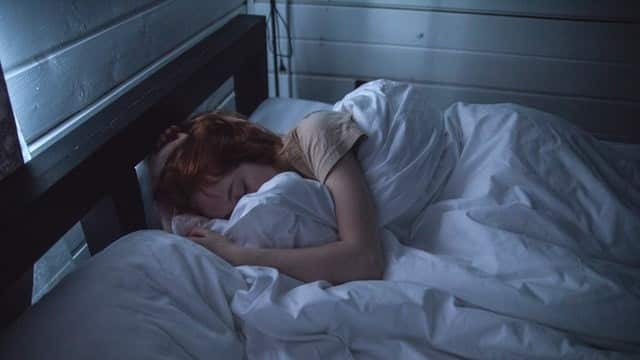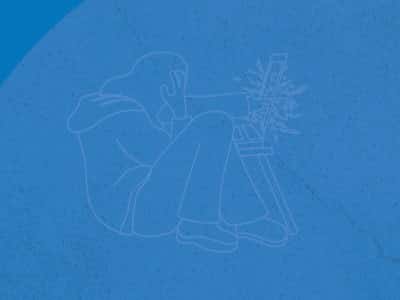More than a few work-weary individuals make a habit of having a “nightcap” before turning in for the night. While it may work for the first few nights, unanticipated problems are likely to surface before long. Alcohol and insomnia tend to go hand-in-hand, with alcohol causing chemical imbalances that only get worse with time. Like any addictive substance, alcohol’s effects interfere with the brain’s natural processes. In cases where drinking becomes problematic, insomnia starts to take on a life of its own.
How the Brain Sleeps
Under normal, healthy conditions, the brain maintains a delicate balance between sleeping and waking states . A small group of neurons or cells regulate wakefulness while another group regulates sleep-time. The cells that keep you awake inhibit the ones that promote sleep and vice versa.
Cells use chemical messengers or neurotransmitters to communicate with each other. When working properly, you experience restful sleep periods, feeling refreshed upon waking. Areas of the brain involved in these processes include the hypothalamus, the brainstem and the cerebral cortex.
Unfortunately, alcohol interacts with all of these areas, disrupting normal cell communications. This interference accounts for the relationship between alcohol and insomnia. In cases of alcohol abuse, problems with sleeping get progressively worse.
Alcohol Effects on the Brain and Body
Alcohol is a depressant, meaning it slows down brain and body functions. Its effects act on a cellular level, seeping into every cell in the body. As blood-alcohol levels increase, cell-alcohol levels rise accordingly.
Alcohol metabolism in the liver produces a harmful by-product material called acetaldehyde. When blood-alcohol levels run too high, acetaldehyde seeps into the body’s cells. On a cellular level, acetaldehyde exposure damages cell DNA and interferes with chemical processes. This degree of access to the body’s cells accounts for the widespread damage alcoholism can have on the body.
Where the brain is concerned, alcohol’s effects on the cells that regulate sleep create imbalances in the chemicals these cells use to communicate with each other. The two main chemicals involved in this process are glutamate and GABA. These chemicals activate the groups of cells that regulate sleep and wake states. Since alcohol is a depressant, it’s presence in large amounts can easily incite chemical imbalances in the brain’s sleep centers. Now is the time to seek help. Call us today.

Are you or your loved one suffering from addiction?
Alcohol Abuse and Insomnia
Considering how fast alcohol calms the nerves, it’s no surprise some people try to use it as a sleep aid. Granted, it does have a sedating effect right after you drink it but that’s as far as its calming effects go. Once asleep, alcohol’s effects on the brain prevent you from experiencing a deep sleep. You may also awake one or more times through the night.
When alcohol abuse or excess drinking enters the picture, alcohol and insomnia patterns enter a whole new level of dysfunction. Here are some ways alcohol abuse further adds to the problem –
Increasing Tolerance Levels
Increasing tolerance levels have to do with how the brain compensates for the changes alcohol causes in its chemical processes. The chemical GABA inhibits neuron signaling, slowing chemical processes down. Glutamate speeds up neuron signaling, which speeds chemical processes up.
When you drink too much on a regular basis, alcohol overstimulates GABA and glutamate secretions, causing imbalances. To compensate for this, the affected cells become desensitized to alcohol’s effects. When this happens, you have to drink larger amounts of alcohol to experience a “buzz” or feel intoxicated.
In effect, the brain’s tolerance for alcohol has increased and it will continue to increase for as long as chemical imbalances persist. If you rely on a drink before bed to fall asleep, at this rate, it will take less than a week before that “nightcap” loses its sleepy effects. While you can drink more to get the desired effect, the risk of developing full-blown insomnia increases considerably.
Alcohol Withdrawal
As tolerance levels rise, the brain reaches a point where it can’t function normally without alcohol. When it doesn’t have the amount it needs, alcohol withdrawal effects start to develop. You’ll likely experience one or more of the following withdrawal symptoms:
- Fatigue
- Cloudy thinking
- Headaches
- Irritability
- Mood swings
These symptoms reflect the state of chemical imbalance present in the brain. While drinking more will help relieve uncomfortable withdrawal effects, it will also worsen the brain’s chemical state. Over time, alcohol withdrawal and insomnia will both get worse.
Alcohol and Sleep Apnea
Sleep apnea is a condition where the muscles in the upper passageway of the throat become relaxed, causing it to narrow or close when you’re asleep. This makes it difficult for air to reach the lungs so you wake up from sleeping to get the air you need. Alcohol’s depressant effects cause the body’s muscles to relax, including the muscles in the throat. For heavy drinkers, this may result in waking up several times a night, making a restful night’s sleep impossible to get.
Insomnia and Alcohol Recovery
At this point, it should come as no surprise that alcohol is one of the symptoms experienced during withdrawal. For someone trying to recover from chronic or long-term alcoholism, insomnia can persist long into the recovery process. This does not bode well for continued sobriety. According to the Handbook of Clinical Neurology , not being able to sleep restfully can greatly increase a person’s risk of relapse. Insomnia’s effects can also cause depression, which only makes the recovery process harder.
Ultimately, alcohol and insomnia will form a vicious cycle when left to their own devices. This is especially the case when alcohol abuse enters the picture. If you’re having problems sleeping and suspect you’re drinking more than you should, it may be time to take action before things start to spin out of control.
Sources –
- healthysleep.med.harvard.edu – Harvard University – Healthy Sleep, “Under the Brain’s Control”
- ncbi.nlm.nih.gov – International Journal of Environmental Research and Public Health, “Cellular and Mitochondrial Effects of Alcohol Consumption”
- ncbi.nlm.nih.gov – Handbook of Clinical Neurology, “Alcohol and the Sleeping Brain”
Medical disclaimer:
Sunshine Behavioral Health strives to help people who are facing substance abuse, addiction, mental health disorders, or a combination of these conditions. It does this by providing compassionate care and evidence-based content that addresses health, treatment, and recovery.
Licensed medical professionals review material we publish on our site. The material is not a substitute for qualified medical diagnoses, treatment, or advice. It should not be used to replace the suggestions of your personal physician or other health care professionals.







